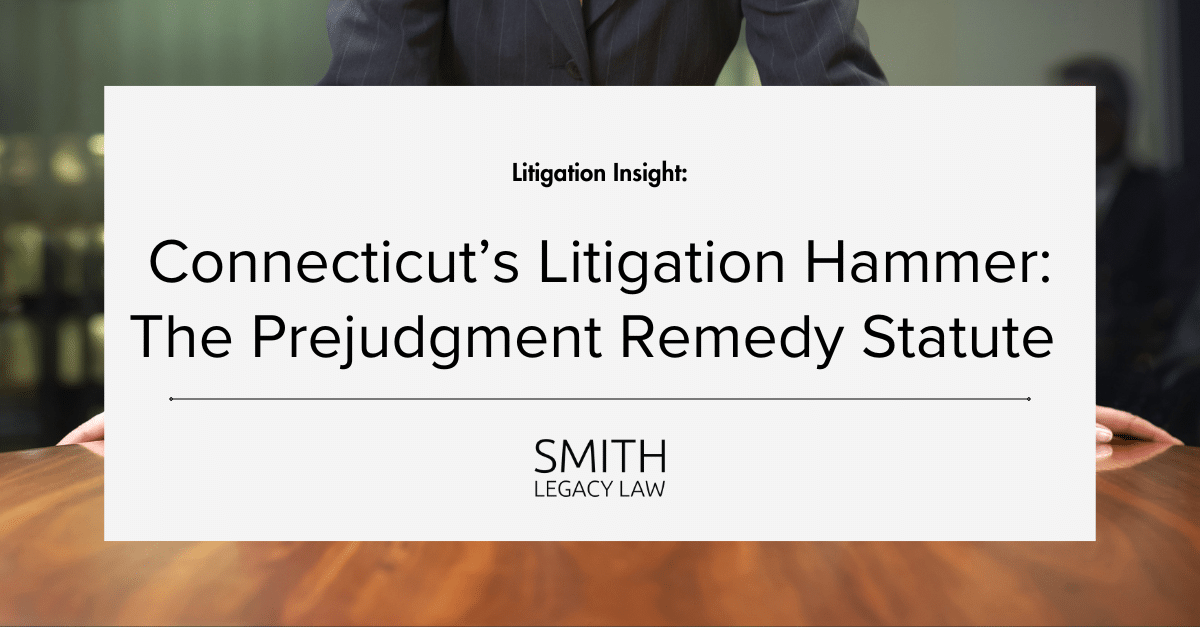Connecticut has a law that is unique among the states and is not widely known. The prejudgment remedy statute is a procedural tool that can protect plaintiffs and effectively resolve certain lawsuits before they have developed into maelstroms and significant time and money have been expended.
What Is in Connecticut’s Prejudgment Remedy Statute?
The statute, also referred to as PJR, permits a litigant to seize (or attach) and freeze a defendant’s assets at the beginning of a lawsuit rather than at the end of the litigation when a defendant may no longer have the resources to pay. The statute helps protect the plaintiff where there is a danger that assets may no longer be available between the time of filing and judgment.
The early use of a PJR also has a beneficial side effect in that it may encourage the parties to settle the dispute quickly on mutually agreeable terms.
When Can You Obtain Prejudgment Attachment?
Prejudgment attachment of assets can be obtained in any type of proceeding in which there is a need to “deprive” or “affect” a defendant’s “use, possession or enjoyment of property,” in order to preserve that property for the satisfaction of a prospective judgment. At one time, litigants could obtain a PJR without a hearing and no notice to the property owner. That was ruled unconstitutional by the U.S. Supreme Court. Today, a hearing is required wherein the party seeking a PJR must be able to demonstrate that there is a reasonable factual and legal basis supporting the applicant’s likelihood of success. This standard, called “probable cause,” does not require an applicant to show a certainty of winning or even that it is more likely than not that he or she would win. Rather, probable cause only requires the existence of facts essential to sustaining the claim being made.
How Do You File for Prejudgment Attachment?
Procedurally, an application for a PJR can be filed in a Connecticut state or federal court before or any time after a lawsuit has been commenced.
When Should You Use a PJR?
If you are placed in a situation where you may need to sue in order to recover property or damages and there is a concern that the other party may dissipate their assets or become insolvent, a PJR may be the remedy you need to level the field until the court renders its verdict.
The statute can also be used to seize property as evidence that is needed to show damages where there are concerns that the property may be lost.
The PJR statute can be used proactively as well. Parties to a contract can include a provision in it that provides that the transaction would be subject to the PJR statute. In the event that one side fails to pay or deliver goods, the other side can prepare an order seeking PJR and serve it on the other party without filing an action in court.
PJR is a valuable tool in litigation that can help ensure recovery of property or payment of damages as well as speed the resolution of disputes.
If you are considering a lawsuit, contact us for a consultation. We have extensive experience advocating for clients in settlement and litigation.
